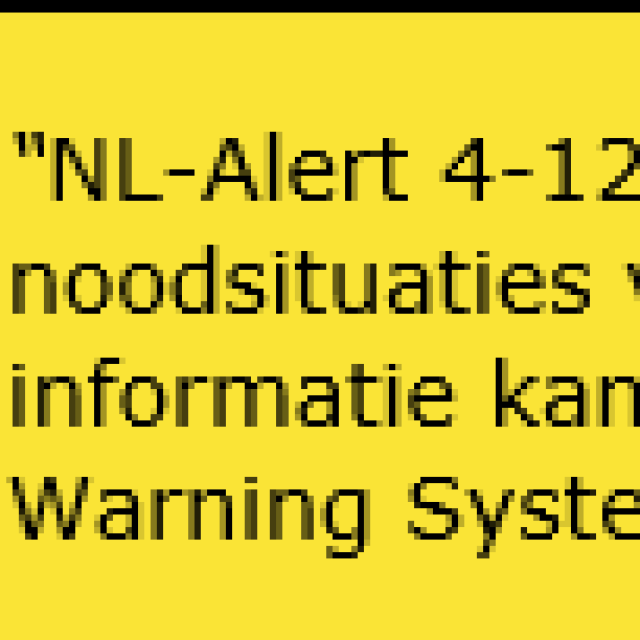
The government will send out an NL-Alert test message on Monday, December 4 around 12 noon. This way you experience what it is like to receive an NL-Alert. When you receive this, you don’t have to do anything: this is a test.
Bram Veldt
Nowadays, almost all Dutch people aged 12 and older (92%) receive the NL-Alert test message. The NL-Alert is the government’s alarm tool that warns and informs about an emergency. On the first Monday of June and December it is clearly stated that it is a test. If it is on a different day, the government will send this NL Alert about a life- and health-threatening situation, and it is therefore not a test. The NL-Alert message states what is going on and what you should do. There is also an NL-Alert message where you can find more information and updates. Earlier this year, PC-Active wrote about NL-Alert and that it could also be seen on NS information screens.
An NL-Alert looks like this:
(article continues below image)
Please note: the test message may sound loud if you use earphones or headphones. It is therefore useful to take off your headphones or remove your earphones from your ears just before 12 noon.
This is how NL-Alert works
NL-Alert is the government’s alarm tool that warns you in emergency situations. You will receive NL-Alert on your mobile phone. The NL-Alert alarm sound is different from a normal message. To receive NL-Alert, your mobile phone must be switched on. You don’t have to set anything else. NL-Alert is free and anonymous, your telephone number remains unknown. You will also receive NL-Alert if the mobile network is overloaded. And you see NL-Alert on digital advertising screens and travel information screens in public transport.
7 in 10 inform others about NL-Alert
Do you receive an NL-Alert? Read the message and do what it says, even if you do not yet notice the emergency. Is there a fire and does the NL-Alert state that you must keep windows and doors closed? Then it is important to follow this advice. For example, the smoke from the fire can spread harmful substances. Always inform others if you receive an NL-Alert, because someone may not have seen the emergency notification yet. Research shows that seven in ten Dutch people inform others if they receive an NL-Alert in the event of an emergency.
Think forward
In the Netherlands we are well prepared for emergencies. An NL-Alert test message helps with this preparation. Still, it is good to take an unexpected threat into account. A major power outage, flood or extreme heat can have major consequences for you and the people around you. That is why it is smart to prepare for this now by discussing with people around you what you can do together to ensure that everyone is safe. And you can, for example, put together an emergency package. For more information, visit www.denkvooruit.nl
